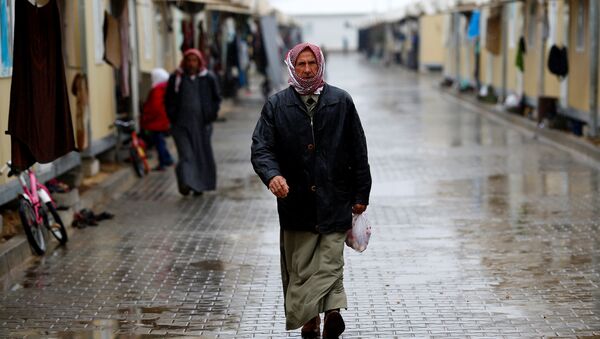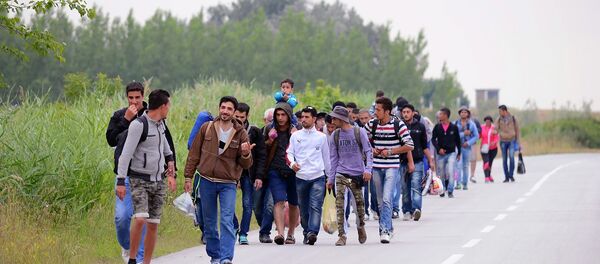He expressed regret about the way the Turkish and European media have addressed the matter. Gorendag also reproached the rhetoric used by Turkish and European political figures, something that he said fuels negative attitudes towards the newcomers.
"The media should use more restrained language on the subject, while the state ought to tread more carefully in its policy towards refugees. First and foremost, this pertains to the European countries and Turkey. These measures could help to reduce society's negative perception of the refugee problem," he said.

He added that although the Turkish-EU agreement on refugees works, the number of refugees who have entered Europe and returned to Turkey under this deal remains very small.
"This is not the case with the number of refugees that illegally entered the European countries. According to EU data, about one million refugees entered Europe last year, a process that continued in 2016 despite some decrease in its intensity compared to the previous year," Gorendag said.
"In fact, we can talk about the existence of migration in an updated form. The EU-Turkey agreement on migrants just changes the roots of the refugees, who currently pass mainly through the Mediterranean Sea rather than being concentrated along part of the Aegean coast," he said.
Gorenbag recalled that scores of refugees continue to die when migrant boats sink off the coast of Libya and in the Mediterranean Sea, a problem that he said now grabs much less international headlines as compared to last year.
"Unfortunately, this year the attention of the public and the press is no longer focused on the migration flows and deaths of refugees," he concluded.
The EU-Turkey agreement for the relocation of migrants — many from Syria — back to Turkey has faced increasing opposition, as it is contingent on Turkish citizens being allowed visa-free access to Europe and the acceleration of Turkish accession into the EU.
Opposition to the migrant deal grew after a government crackdown on opposition groups, the media and civil servants which followed the failed coup in Turkey in July 2016.
The Ankara-Brussels agreement on returning undocumented migrants in exchange for Syrian refugees on a one-for-one basis came into force on April 4, 2016.
Never miss a story again — sign up to our Telegram channel and we'll keep you up to speed!






